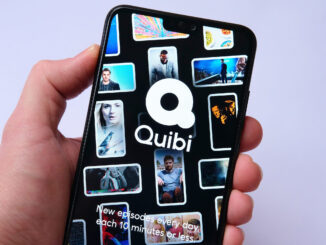02/18/2021
Noah Wilbur | Opinions Editor
Close to 18 years ago, the world was introduced to none other than the revolutionary social networking site, Myspace. The first of its kind, this innovative platform is arguably responsible for sparking the meteoric rise of social media that has taken place over the past two decades.
Now, with nearly 4 billion people across the globe using social media to some degree, it is reasonable for me to infer that this “meteoric rise” is, in fact, nothing less than a social phenomenon.
Since 2015, social media use has grown by an average of 12.5% year-over-year with the current count of worldwide users almost doubling from five years ago. In the U.S. alone, over 75% of the population owns at least one social media account — an increase of more than 70% since 2005.
The overwhelming evidence clearly indicates that the advent of social networking has truly changed life as we know it and is now deeply rooted in our everyday lives. As a consequence, the decisions and actions we make on a daily basis — whether it be in a professional or social setting — are intrinsically influenced by this external force.
Think about it. How many memorable moments can you recall with friends or family where you spent more time in pursuit of the perfect pic for the Gram rather than actually living in the moment?
Don’t worry, I’m not calling you out. I am just as guilty as the next for succumbing to the societal trend of “doing it for the gram.” All jokes aside, you must admit that our society’s social networking dependency is unmistakably apparent even without all the arbitrary statistical verbose.
Supporters of social media’s rapid ascent into the spotlight emphasize the fact that these platforms create value for society by enhancing communication, providing easy access to information, offering opportunities to grow professionally or simply to meet people with similar interests, and last but not least a place where creativity and self-expression is encouraged. Albeit, most of these “supporters” are the notorious Zucks and their disciples of the tech industry.
I’m not necessarily suggesting that the vision of these entrepreneurs is inherently flawed. Much research confirms the benefits society derives from platforms such as Facebook, Snapchat, Twitter and the like. However, I am of the opinion that the negatives outweigh the positives. As luck would have it, my point is also validated by empirical evidence.
From social displacement and increased anxiety, to FOMO and feelings of inadequacy, there are a growing number of academic studies confirming the direct relationship between social media usage and diminishing mental health.
The issue at hand ultimately boils down to the notion of social image and humanity’s desire to construct an outward appearance that breeds gratification from our peers and colleagues — a socio-economic paradox that social media has indisputably accelerated.
Social networking platforms are specifically designed to activate the pleasure department within our brains by triggering the release of dopamine — our “feel-good chemical” — and thus establishing a dependent relationship where users crave constant satisfaction from followers, likes, retweets and shares.
Most importantly, research is supporting our worst fear that social media is adversely impacting younger generations. In a 2018 study by Pew Research, 45% of American teens between the ages of 13 to 17 stated they are online “almost constantly” — a 21% surge from 2015. What’s important to note here is that reports of depression, anxiety and low self-esteem have also risen considerably during this same time period that social media usage has increased among teenagers.
Not to mention, bullying is also widely prevalent across social media. As cyberbullying continues to grow increasingly mainstream, young adults, teenagers and adolescents are more than ever at risk of online harassment. According to the American Psychological Association, a recent survey found that almost two-thirds of teens indicated that they “often” or “sometimes” stumble upon “sexist, homophobic or religious-based hate content in social media.”
The truth of the matter is that social media is undeniably reshaping the way the world thinks about politics, commerce, education, culture and other aspects of life by influencing relationships as well as individual behavior. With this change accelerating every passing day, and only further expedited by the arrival of COVID-19, the future of social order hangs in the balance.
With awareness growing and humanity becoming more informed, I am of the opinion that new research will soon emerge that further validates social media’s negative influence on our globalized and modern society. That being said, I also believe there is hope and even an opportunity to change our habits and use these platforms in a way that is valuable and useful.
Last week, I urged people to put down the cellular devices, disconnect and throw on a vinyl record. This week, I am urging each of you to make an effort to live in the moment as I can promise all the Insta pictures and tweets in the world will never amount to the pleasure of experiencing the moment in real time.




